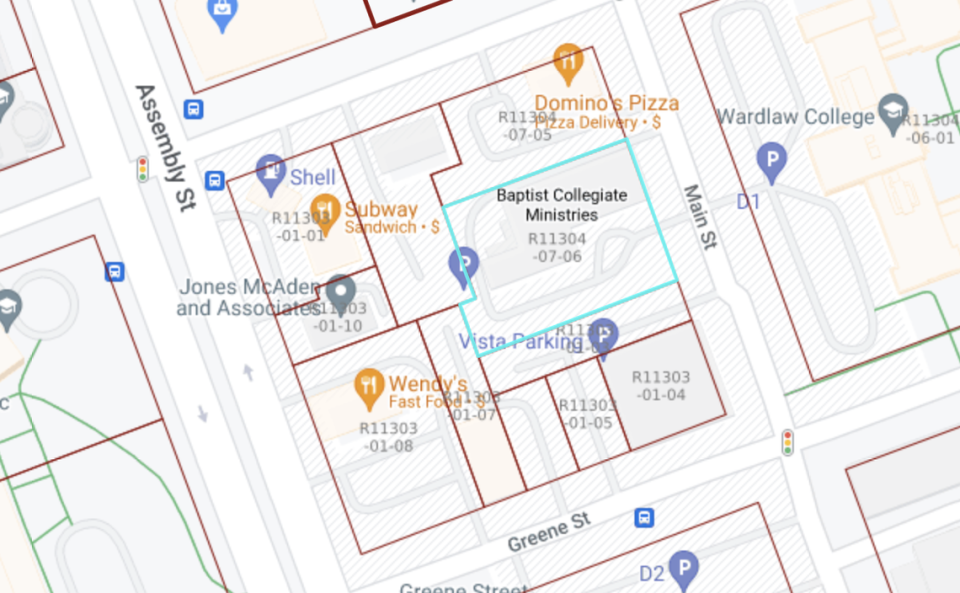Baptist Collegiate Ministry a ‘key site’ for USC, S. Main development, school says
- Oops!Something went wrong.Please try again later.
The South Carolina Baptist Convention owns a parcel of land that could be crucial to the future of South Main Street. But it’s not for sale, the convention says.
In a USC board meeting in October, the finance and infrastructure committee reported on recent property purchases and future projects. During the presentation, the 800 block was called a “key site” for development. The Baptist Collegiate Ministry building at 819 S. Main was specifically mentioned as an importance piece.
However, no current negotiations for the property are underway, said university spokesman Jeff Stensland.
The convention bought the land in 2001, and it became the home of the Baptist Collegiate Ministry at USC.
South Main street is an “ideal location” for the Collegiate Ministry headquarters, said Bryant Sims, director of the state Baptist Convention’s denominational relations. Its proximity to USC’s campus, parking and space for offices and meetings serves them well.
“While we have entertained various inquiries concerning this property from time to time, we have no plans to relocate,” Sims said. “We look forward to continued ministry on the University campus for the foreseeable future.”
USC owns many properties on South Main Street, including much of the block between Greene and College streets, though much of it has sat vacant or underutilized for years. In 2015, the university opposed a 15-story apartment building there. It was eventually leased to a Domino’s restaurant.

Development near the area, led by the South Carolina Department of Transportation, is set to begin spring of 2023. It’s expected to cost more than $23 million and will use local and federal money, as well as money from the University of South Carolina.

